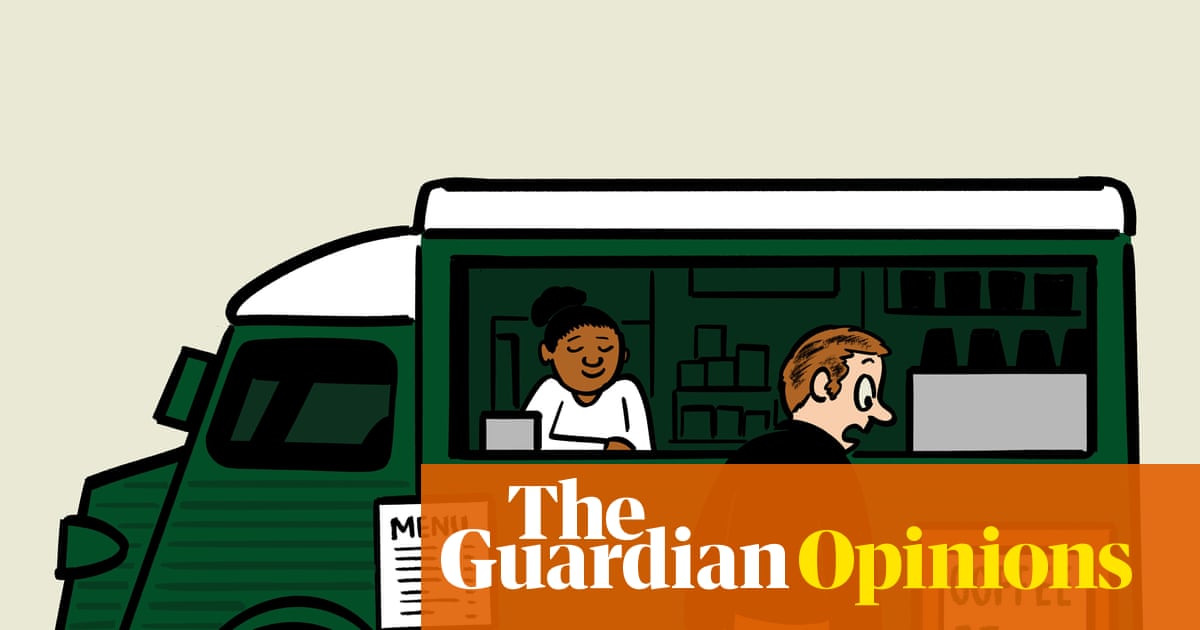
"a takeaway oat-milk latte from a bog-standard roadside chain somewhere in Berkshire. The shock was that it was over 5. Coffee hasn't really been cheap for ages, for complex reasons post-pandemic inflation, a Russian war pushing up energy prices, a climate crisis having an effect on coffee bean growth, last year's budget tax hikes that capture the bitter flavours of the last few years in a cup."
"Less predatory capitalism, more global problems coming home to roost. But still, north of a fiver, for caffeinated cereal juice? I felt like the eight-year-old whose outraged reaction to ice-cream van prices NINE POUND FOR TWO? went viral this summer on TikTok. This isn't going to be a column about how millennials could all be homeowners if they bought fewer flat whites, nor an invitation to play the world's smallest violin for the not-that-squeezed middle classes when so many people are properly on the breadline."
"Rather, it's about the strangely mood-dampening effect of little everyday treats beginning to feel unjustifiable, even for people who aren't watching every penny; how that makes life feel more grey and drab, undermining any optimism about how the country is doing more broadly. For many gen Xers it feels oddly like sliding back towards the land of our childhoods, where eating out was strictly for the most special occasions,"
An oat-milk latte costing over £5 exemplifies how small indulgences have become unexpectedly pricey. Multiple factors push prices up: post-pandemic inflation, the Russian war raising energy costs, climate impacts on coffee yields, and recent tax hikes. These increases make little treats feel unjustifiable and drain everyday pleasure, contributing to a greyer, more frugal mood. Many people, especially Gen Xers, perceive a return to childhood-era thrift—rare eating out, Thermos coffee on outings, DIY nails—raising the possibility that the consumer boom of recent decades was a temporary blip rather than a permanent norm.
Read at www.theguardian.com
Unable to calculate read time
Collection
[
|
...
]